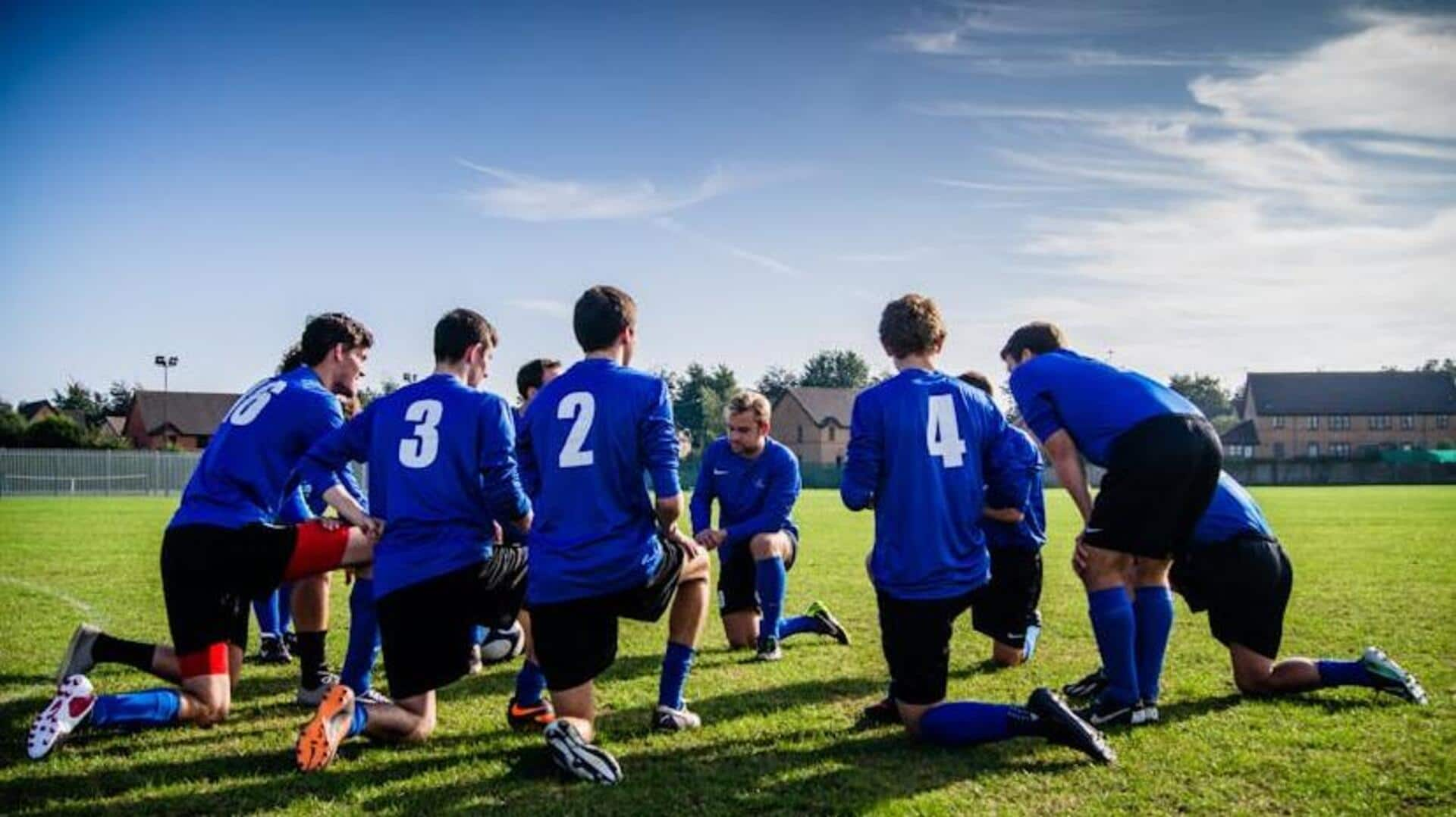Inspiring leadership skills with team sports
What's the story
Team sports aren't just for breaking a sweat on the field; they're also a hotbed for cultivating future leaders.
By getting in the game, kids learn the ropes of teamwork, responsibility, and even the art of strategic planning.
Read on to discover how team sports shape young competitors into confident leaders, ready to tackle life's challenges with the same determination they bring to the match.
Teamwork
Building team spirit and cooperation
In team sports, you can't win on your own. Everyone has to work together, and that's why they're called "team sports."
Children learn that they need to help each other and work together as a team to succeed.
This fosters effective leadership by teaching kids the importance of collaboration and mutual support in achieving goals.
Communication
Developing communication skills
Clear communication is crucial on the sports field.
Players need to communicate their tactics, call out plays, or provide words of encouragement to their teammates.
This need helps young athletes develop strong verbal and non-verbal communication skills.
And as leaders, effective communication is key in leading teams, managing conflicts, and inspiring others toward goal accomplishment.
Resilience
Learning to handle failure gracefully
Defeats and losses are inevitable in any sport.
The valuable lesson team sports impart to children is not only the jubilation of victories, but also the art of navigating defeats with grace and resilience.
Understanding that failure is a stepping stone to improvement fosters a leader who can tackle challenges head-on, motivate their team through adversity, and ultimately grow stronger from setbacks.
Discipline
Understanding the importance of discipline
Discipline in training, respect for the rules of the game, and adherence to schedules cultivate a strong sense of responsibility in young athletes.
It imparts the value of prioritizing tasks, managing time efficiently, and dedicating oneself to achieve set goals.
These attributes are essential for any leader striving to command trust and respect from their colleagues or subordinates.
Hence, discipline is the very foundation of successful leadership.
Strategy
Encouraging strategic thinking
Team sports demand strategic thinking—formulating a plan of attack, anticipating the opponent's moves, and setting up defense mechanisms against them.
Children who participate in these exercises learn to analyze situations and make rapid decisions based on the shifting circumstances on the field.
This ability is crucial for leaders who need to evaluate situations quickly and formulate successful strategies under pressure.
